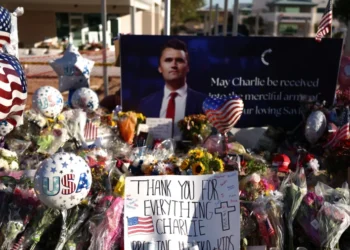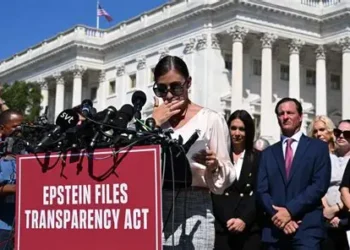In a riveting appearance on Steve Bannon’s WarRoom podcast on Saturday, conservative commentator Dr. Michael Savage delivered a passionate and doubtful assessment of the recent assassination of Charlie Kirk, the young firebrand founder of Turning Point USA. Kirk, whom Savage hailed as the “leader of the next-generation patriots,” was portrayed as a vital force in the conservative movement—a symbol of youth resisting the erosion of American sovereignty.
Dr. Michael Savage: None Of It Adds Up That This Kid Did It On His Own @ASavageNation pic.twitter.com/fkYZavCA6y
— Bannon’s WarRoom (@Bannons_WarRoom) September 20, 2025
Savage lamented Kirk’s death as a targeted strike against cultural conservatives. Saying these are the kids who refuse to let America devolve into a fragmented entity akin to the European Union or war-torn Ukraine.
“They killed the leader of the next-generation patriots, culture conservatives,” Savage said, underscoring the profound loss to those fighting to preserve the nation’s identity.
Savage’s commentary was steeped in deep skepticism toward the official narrative surrounding the Utah shooting that killed Kirk. Drawing from his isolated vantage point in Northern California—where he said he lives a solitary life of reflection, cycling, boating, and prayer—he confessed to having no insider knowledge, relying instead on “plain native intelligence and deductive reasoning.”
Savage made a podcast about the details he heard about the shooter at the time and described the investigation as shrouded in “muddy waters,” so opaque that it would require “a diver with an acetylene torch to get into the wreck and pull out the corpse.”
This metaphor captured his frustration with the inconsistencies plaguing the case and caused the podcast to go viral.
Central to Savage’s doubts were the erratic reports on the alleged assassin. Initial claims suggested the shooter, Tyler Robinson, confessed, only for stories to shift: he was cooperating, then not. Savage zeroed in on the text messages between Robinson and his transgender roommate, describing them as “stilted” and unnatural for young adults.
An objective analysis, he noted, revealed formal dialogue with complete sentences, proper punctuation, and a glaring absence of slang, emojis, or abbreviations—hallmarks of casual Gen Z texting. “It seems that it was an AI-written text message,” Savage asserted, citing style analyses that likened the exchanges to scripted Hollywood screenplays or Netflix drama dialogue.
The calm, articulate tone of Robinson’s supposed confessions struck him as implausible, more like a “Shakespeare sonnet” amid chaos than frantic admissions. Further fueling his suspicions were unresolved anomalies in the evidence. Savage questioned the feasibility of the 250-yard shot, even with a scope, dismissing claims it was “easy.”
He highlighted mysterious hand signals captured on video, unidentified figures, and discrepancies in reports—like the governor’s mention of clothing changes on the roof and a gun allegedly dropped, which Savage couldn’t spot after reviewing footage “100 times.”
These elements, he argued, strained credulity and echoed historical cover-ups, such as the JFK assassination, which eroded public trust in institutions starting in the 1960s.
Savage tied these doubts to broader themes from his decades-long advocacy, reiterating his “borders, language, culture” (BLC) mantra as the bedrock of national survival.
Kirk’s murder, in his view, was part of a globalist assault on these pillars, orchestrated by elites like George Soros to create division and manipulation.
Ultimately, Savage’s WarRoom remarks called for accountability and truth-seeking, urging the public to demand answers in this “gigantic whodunit.” Whether a vast conspiracy or incompetence, he warned, the stakes are America’s future. As the nation mourns Kirk, Savage’s voice remains a clarion call for vigilance against narratives that don’t add up.
For more context, watch the full interview:




